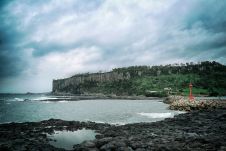Hydrographic Survey Linked to Mass Whale Stranding
A mass stranding of melon-headed whales occurred in May-June 2008 in the Loza Lagoon system in Madagascar. About 100 open-ocean mammals mysteriously entered the shallow estuarine system. Recently, a report by an independent scientific research panel of the International Whaling Commission examining the cause of the stranding was presented. It points to a hydrographic survey that was taking place about 65km offshore using a high-power 12kHz multibeam echosounder.
The research report excluded seismic airguns being used in the offshore and oil industry as they were working after the stranding took place. The hydrographic survey was concentrating on the shelf break abouit 65km offshore the estuary the day before the event took place. The multibeam system used a lower frequency and higher output power than the higher-frequency, lower powered fish finding or bathymetry equipment used in shallow waters.
The researchers had difficulties determining the cause of the stranding as this was the first time a clear link between the stranding and a survey could be made. They suggested other factors such as social interaction, currents towards the shore or elevated cholophyll levels caused the animals to move towards unfamiliar areas. As these mammals are likely to hear in the 10-100kHz range which normally tend to be free of ambient noise, they may have considered the survey sounds as a potential threats as it could carry over a long distance.
The researchers also concluded that it is difficult to determine the real interaction between the whales and the multibeam signals. However they think this insight may be useful to consider in future environmental assessments.














